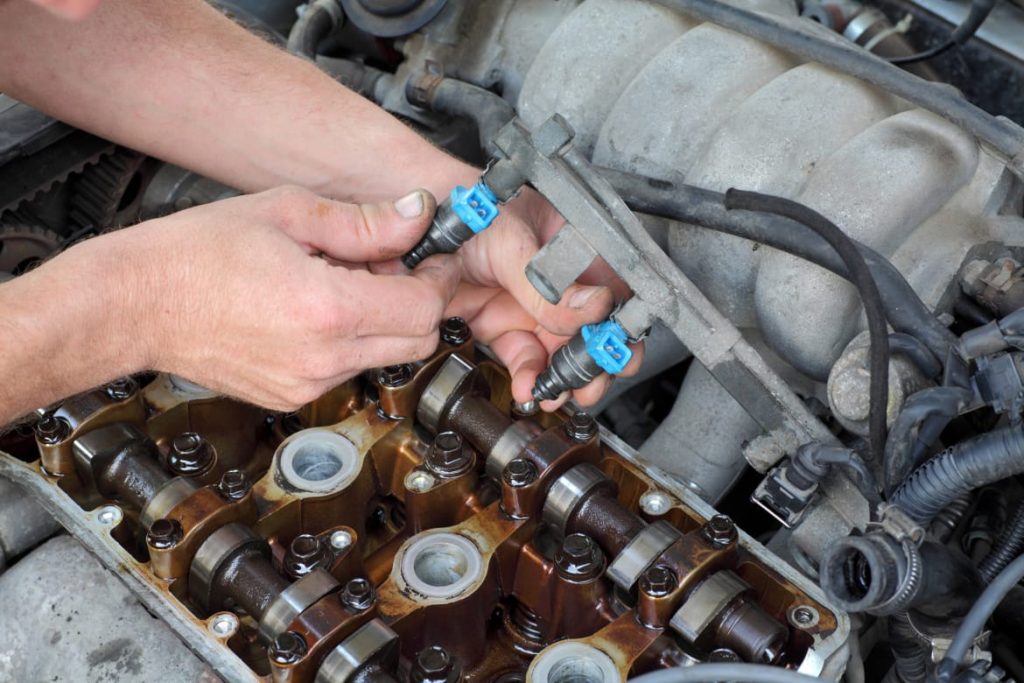(ThyBlackMan.com) Diesel engines and vehicles are gradually becoming the choice of drivers and car buyers. This is partially due to the overall affordability and better performance. But then, for many people, this is their first time owning a diesel car or truck. As a result, the required level of care and maintenance is unfamiliar to many first-time diesel drivers. Nevertheless, the good news is diesel engine and vehicle maintenance isn’t overly complicated. Thus, once you get a feel for what you need to do to ensure that your car or truck is in tip-top shape, you should have no trouble at all keeping your diesel engine happy and working efficiently for years to come.
Fuel Injector Overview
Obviously, there are several key differences between a diesel engine and a standard gasoline engine. However, one of the biggest changes, for most people, is the diesel fuel injectors. These particular injectors are vital parts controlled by your vehicle/engine’s computer to ensure a seamless delivery of fuel. That said, a diesel fuel injection system receives and dispenses its fuel as a fine, high-pressured mist, which is vastly different from other conventional injection systems. Due to this change in fuel delivery and the need for pressurized combustion, most diesel fuel has performance additives. However, these additives, though necessary, lead to build-up over time both in the engine and in the fuel injectors.

Different Types
Overall, there are essentially two types of fuel injectors—the traditional setup and the direct injection system. A standard or traditional injector setup sprays diesel into the intake manifold, which allows the fuel to mix with air. The mixture of air and fuel then enters the combustion chamber, so it can be ignited. The direct injection system, on the other hand, sprays fuel directly into the cylinders. This particular method allows for better emissions control, greater fuel efficiency, and more power, especially in smaller engines.
Injector Failure
Typically, fuel injectors are made to last. However, issues and problems arise just like with any other mechanical component. The most common issues and problems that occur are injector failure, clogging, and broken or cracked seals. Electrical failures can also happen and are generally caused by excessive heat, water/moisture damage, or overall wear and tear (age).
Diagnosing a Problem
Fuel injectors tend to misfire when they aren’t working properly. Misfires are usually a symptom of a lack of fuel or that your cylinders are malfunctioning. Moreover, the “check engine” warning light will appear if you’re having issues with your fuel injectors. Here, the engine trouble light is an indicator that your vehicle’s injectors may need cleaning or are leaking fuel. If the injectors are leaking fuel, you’ll notice a distinct smell while your car or truck is running. Other issues to look out for include rough idling, engine stalling, and poor fuel economy.
Cleaners
In the event that your fuel injectors just need deep cleaning, there are a few things you can do. For instance, if your budget allows, you can choose to have a mechanic or professional-use ultrasonic waves to clear out deposits or additive build-up. This is obviously the more expensive route, but if you prefer to let someone else handle it, then you might want to consider this option. Alternatively, if you choose to clean your fuel injectors yourself, then commercial injector cleaners are a great way to get the job done.
Neglecting Regular Maintenance
Of course, if the problem or issue is more serious and you choose to do nothing about it, you’ll almost certainly regret it. For example, if you have a fuel injector that’s leaking fuel, this is extremely hazardous. Vapors from the fuel can easily catch on fire, especially if you’re using gasoline fuel instead of diesel. Though diesel is less flammable, it’s still not good to have diesel fuel leaking out of your engine. When your diesel engine doesn’t have an adequate amount of fuel over an extended period, internal engine damage is very likely. Lack of fuel is known as fuel starvation, and will only add to the overall cost of repairs if you choose to neglect or ignore it.
Replacement
More often than not, it’s easier and more cost-effective to simply replace fuel injectors. Replacement injectors can be found for as low as $25, depending on function, brand, etc. If you don’t feel like cleaning your existing injectors or they are broken/cracked, do yourself a favor and replace them. New fuel injectors are relatively affordable and can be purchased new, used, or rebuilt. Thus, if you need to replace your fuel injectors, go to https://goldfarbinc.com/collections/fuel-injectors and pick out your brand-new or used/rebuilt injectors today. With that said, if you’re replacing your injectors for reasons other than clogging, it’s highly recommended that you replace all injectors. You should also purchase new O-ring seals to prevent any leaks down the road.
Prevention
Lastly, to prevent premature injector failure, keeping up with regular maintenance is a must. This means replacing your fuel filter per the specified time/mileage interval. You may also want to look into fuel injectors and additive cleaners every 5,000 miles or so. Finally, if you’re replacing your injectors or any components of your diesel engine, used and remanufactured parts are the more affordable options. However, the service life/quality isn’t as high as it is typically with new equipment. Therefore, if you can swing to purchase all new components, injectors, and seals, you should absolutely buy new.
Final Note
Now that you’re a proud owner of a diesel car or truck, it is important you take care of it. As diesel technology advances, maintaining a diesel vehicle only gets easier. Ultimately, one of the best things you can do for your car or truck is to stay on top of regular maintenance, which obviously includes paying extra attention to your vehicle’s fuel injectors.
Staff Writer; Brad Jackson
















Leave a Reply